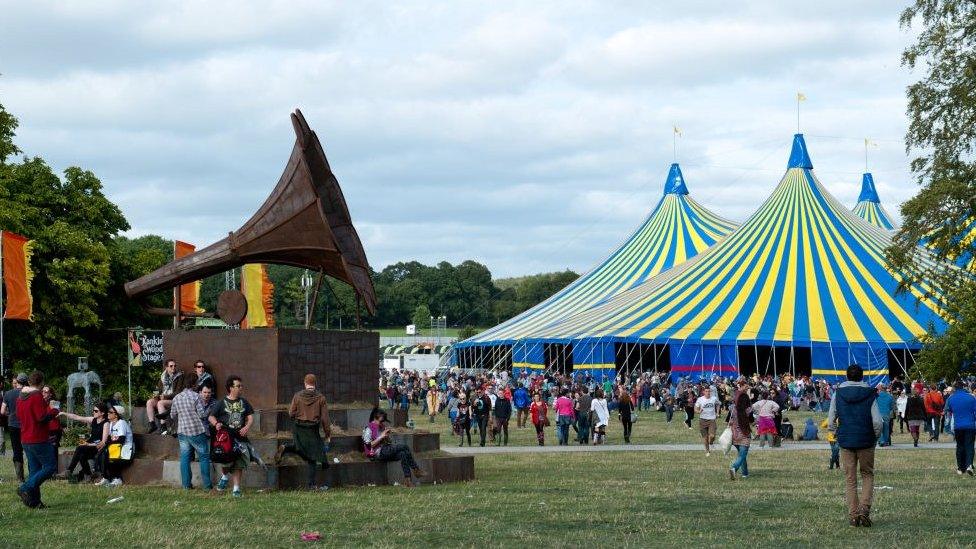Drug testing pilot rolled out to Irish festivals
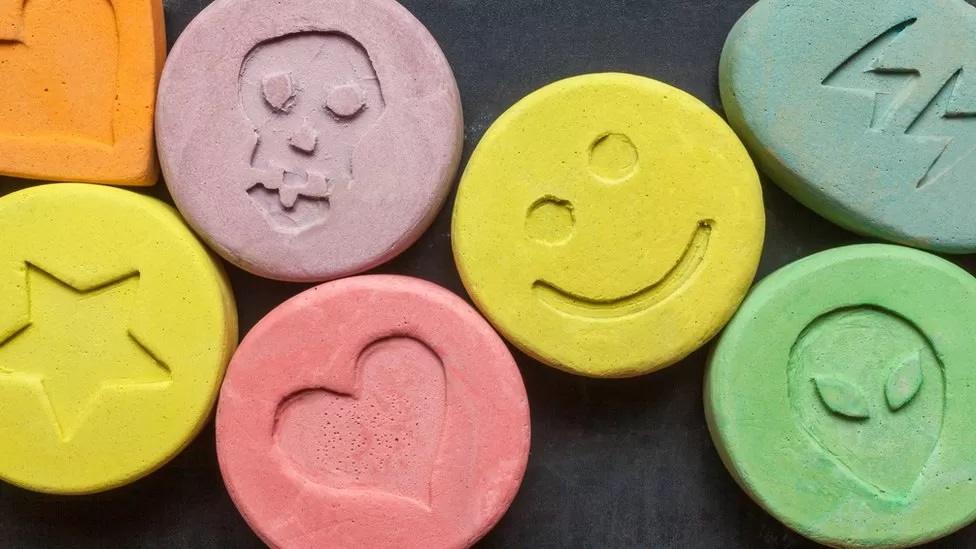
A pilot test scheme was launched at Electric Picnic last year
- Published
Health officials in the Republic of Ireland have said a drug testing pilot, first introduced at Electric Picnic last year, will be rolled out to other festivals this summer.
The scheme is being operated by the Health Service Executive (HSE) Safer Nightlife programme.
It operates as a "back of house" drug checking service with an aim to identify drug market trends of concern.
The programme will begin at Life Festival in Mullingar on Friday.
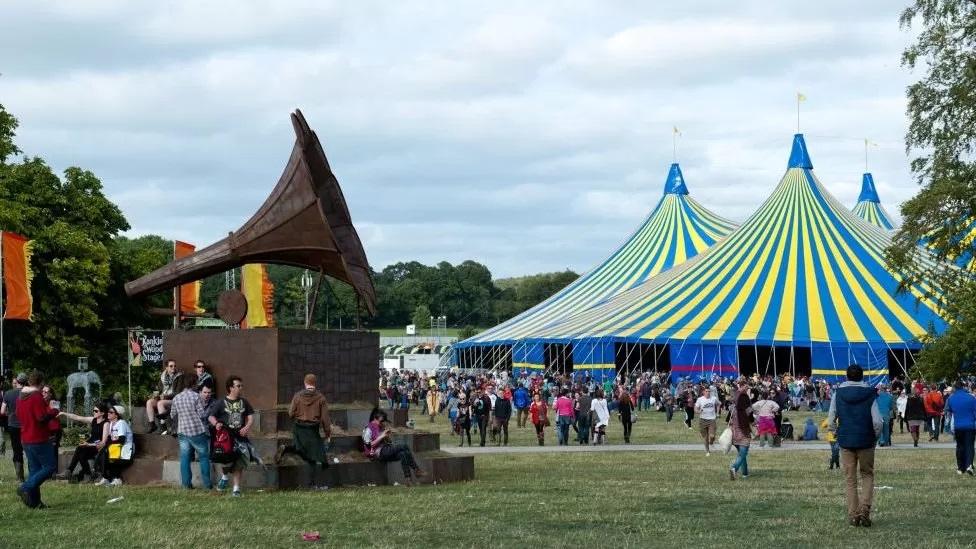
Electric Picnic is set to return to Stradbally Hall Estate this September
Electric Picnic is an arts and music festival at Stradbally Hall Estate, County Laois.
It was established as an annual event in 2004 but it could not take place in 2020 and 2021 due to the coronavirus pandemic.
The festival returned last September with thousands gathering to watch a line-up that included Tame Impala, Arctic Monkeys and Snow Patrol.
The executive found trends of concern during last year's festival including high potency drugs, 12 new psychoactive substances and four drugs which had never been identified in Ireland.
"We can access drugs in a safe, non-judgemental manner to quickly gain insight on what drugs may be in circulation and issue real time drug alerts about substances of concern to festival attendees via our social media channels," Prof Eamon Keenan, the HSE's national clinical lead for addiction services, said.
The HSE added it was working with An Garda Síochána (Irish police) to guarantee their medical tents are health-led, safe spaces for people to talk about their use and consider surrendering drugs.
Mum works with drug charity after daughters death at festival
Drugs testing is now widely practiced across numerous festivals in the United Kingdom.
Researchers at Cardiff University analysed hundreds of samples of the illegal drug MDMA, also called ecstasy, at three UK festivals in 2019 and 2021, and found it was more contaminated following Brexit and Covid lockdowns.
In the supposed MDMA samples analysed from 2021, one in five included caffeine, and another fifth included synthetic cathinones.
Both substances were almost completely absent from the 2019 samples.
Nicki Killeen, emerging drug trends project manager at HSE, said they are also concerned by the emergence of new drugs, such as synthetic stimulants and cannabinoids, as well as varying strengths between batches.
"We found six similar MDMA skull pills last summer that varied from containing 36mg – 235mg of MDMA which shows that people can never be fully sure of the contents and pills can vary even from the same batch."
Related topics
- Published5 July 2018

- Published8 June 2022
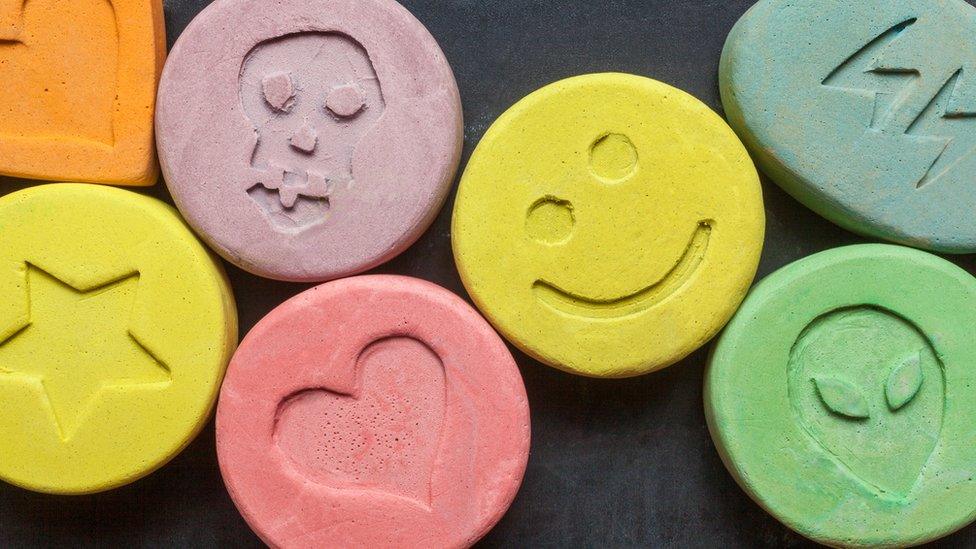
- Published14 November 2022
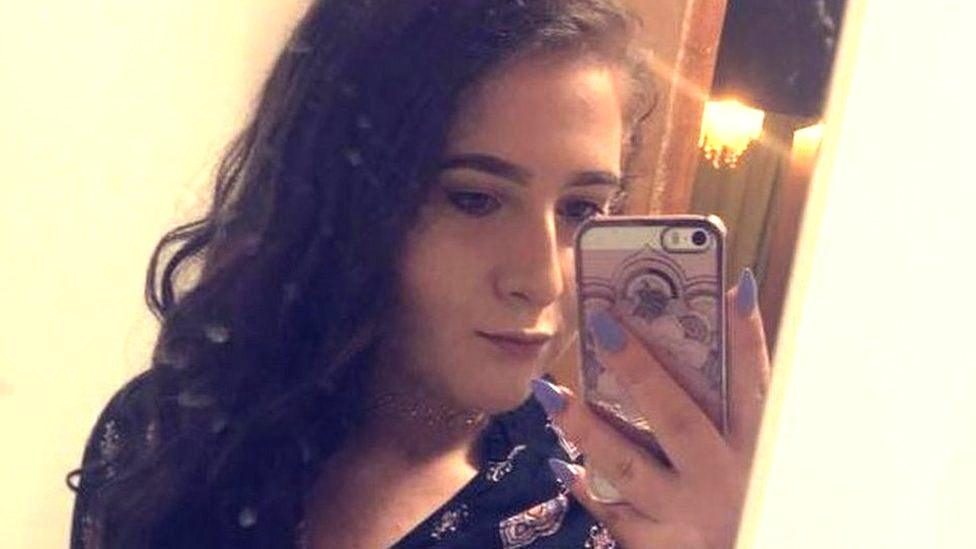
- Published3 September 2018
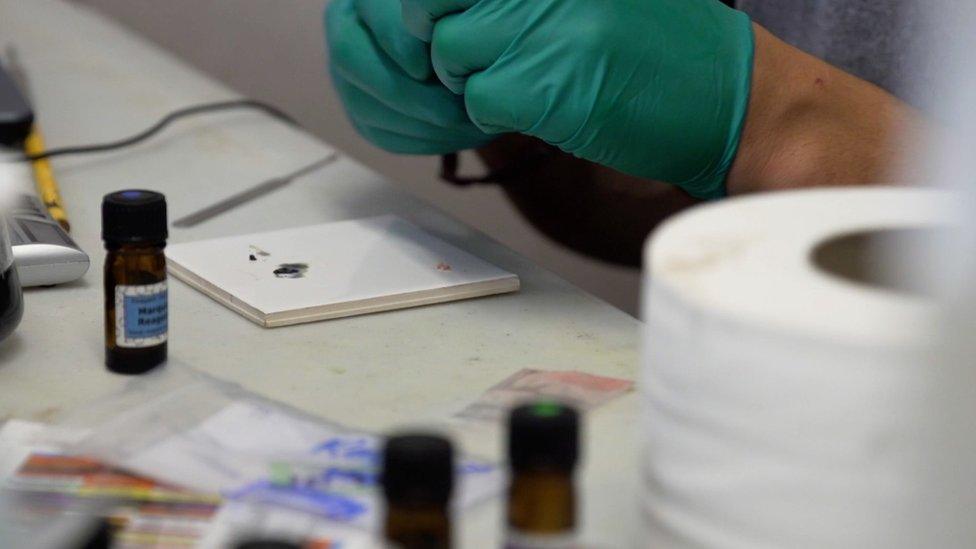
- Published19 August 2022
